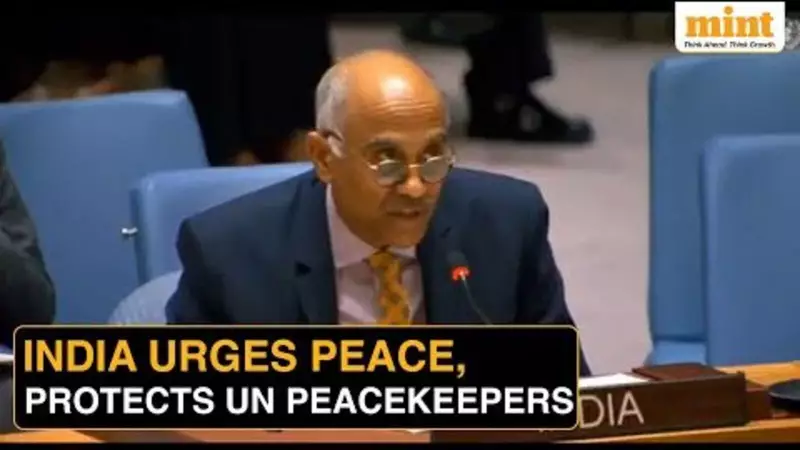
In a powerful address at the United Nations Security Council, India has reinforced its unwavering commitment to global peace and security, placing special emphasis on two critical pillars: the safety of UN peacekeepers and the unimpeded flow of humanitarian assistance.
India's Diplomatic Priorities at the Global High Table
Ambassador Ruchira Kamboj, India's Permanent Representative to the UN, articulated a clear and compelling vision during a recent high-level debate. The Indian delegation stressed that the primary mandate of UN peacekeeping missions must be safeguarded above all else, ensuring that those who risk their lives for global peace are adequately protected.
The Critical Need for Safe Humanitarian Corridors
A significant portion of India's intervention focused on the urgent need for humanitarian aid to reach civilians trapped in conflict zones without obstruction. The Indian representative highlighted how bureaucratic hurdles and deliberate blockades are exacerbating human suffering in various global hotspots.
Key points from India's UNSC statement include:
- Protection First: Enhanced security protocols and resources for UN peacekeeping personnel deployed in volatile regions
- Humanitarian Access: Removal of artificial barriers preventing life-saving aid from reaching affected populations
- Political Solutions: Emphasizing that humanitarian efforts must be coupled with sustained political resolution processes
- International Cooperation: Calling for collective action from global powers to address root causes of conflicts
India's Growing Influence in Global Peacekeeping
This strong positioning comes at a time when India continues to be one of the largest contributors of troops to UN peacekeeping operations worldwide. The nation's extensive experience in conflict zones informs its diplomatic approach, lending credibility and practical insight to Security Council discussions.
The Indian delegation's statements reflect New Delhi's broader foreign policy objective of shaping global norms and ensuring that international institutions remain effective, responsive, and truly representative of contemporary geopolitical realities.





